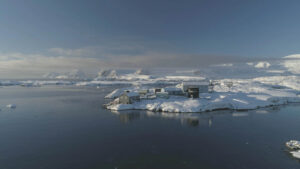
Canada’s Future Relies on Exploration Remote Site Services
Exploration remote site services play a foundational role in enabling Canada’s most strategically important industries to operate in some of

In Canada’s vast and rugged landscapes, remote facility catering has evolved from a logistical challenge into a platform for sustainable innovation and cultural respect. Supporting remote operations—from diamond mines in the Northwest Territories to oil sands in Alberta and research stations in Nunavut—requires more than just delivering meals. The modern culinary model relies increasingly on Indigenous partnerships to source fresh, ethical ingredients tailored to Canada’s unique ecosystems.
By integrating Indigenous knowledge, seasonal adaptability, and regional sourcing, remote camp catering has become a powerful tool for creating resilient systems in Canada’s most isolated locations. From menu planning to supply chain logistics, remote site catering now reflects a deeper understanding of community, ecology, and tradition.
Many industrial activities occur on or near Indigenous lands. Partnering with Indigenous communities for remote facility food catering ensures operations are both respectful and strategically sound. These partnerships open pathways to:
For example, a camp catering company operating in Manitoba often sources wild rice—a staple of Anishinaabe cuisine—from Indigenous-run cooperatives. Similarly, food catering services in the Yukon collaborate with First Nations hunters for game meat and seasonal offerings that minimize environmental disruption.
These efforts are more than symbolic—they actively reshape the way remote camp food catering services engage with land, people, and heritage.
In British Columbia, Indigenous-led greenhouses supply herbs, greens, and native fruits to nearby forestry food catering services. These operations reduce reliance on long-haul transportation and prioritize regenerative agriculture.
This local procurement model empowers Indigenous suppliers while enhancing the freshness and nutritional value of ingredients used by remote providers across Canada.
Adapting camp food menu ideas to seasonal cycles is essential in Canada’s climate zones. Chefs in remote site food catering services often collaborate with Indigenous consultants to build menus rooted in ancestral food knowledge.
Summer menus may feature:
Winter offerings rely on:
This approach ensures meals are both nourishing and ecologically responsible, especially for isolated crews relying on exploration remote food catering services in the Yukon or Northern Ontario.
Hydroponics and greenhouse systems are gaining traction at camps. In Labrador and Northern Manitoba, remote sites have adopted community-run gardens managed jointly by Indigenous teams and facility operators. These provide fresh greens, tomatoes, herbs, and edible flowers for on-site kitchens year-round.
For instance:
These practices reduce dependence on air delivery and promote food sovereignty at the local level.

Beyond sourcing ingredients, remote camp food catering increasingly includes Indigenous employment and culturally inclusive training practices. These ensure safety protocols align with values of respect and inclusion.
Programs across Canada feature:
In Ontario, collaboration between remote camp food catering services and Indigenous colleges has produced co-op programs where students train in culinary arts and remote hospitality management—often transitioning directly into careers with remote catering companies operating at mine and research sites.
Breakfast – Bannock topped with wild blueberry jam and maple butter
Lunch – Venison stew with root vegetables and wild rice
Dinner – Cedar-smoked Arctic char with squash purée and pickled spruce tips
Snacks – Seaweed crisps, dried cranberries, and birch bark tea
This menu celebrates local ingredients and respects ancestral knowledge while meeting the practical demands of remote camp food catering services. Each dish is a fusion of tradition and modern nutrition, rooted in Canadian soil and spirit.
These examples show how sourcing and service evolve when respect leads the way.
Sustainable sourcing in remote culinary operations across Canada is not just about fresh produce—it’s about relationships, responsibility, and regeneration. Indigenous partnerships offer a blueprint for how remote meal services can thrive ethically and ecologically.
By embracing Indigenous perspectives and integrating cultural practices into daily operations, on-site culinary services move beyond sustenance to stewardship. From gold mine camps in Northern Ontario to Arctic research stations, the inclusion of Indigenous voices ensures meal choices are sustainable, just, and rooted in place.
The continued evolution of remote facility catering in Canada depends on our willingness to collaborate with and learn from those who know the land best.
From mines to research stations, our remote camp catering services go beyond logistics—they’re lasting partnerships. Join us in crafting food programs that nourish communities and honor Indigenous traditions. Contact the Domco Group today to explore how we deliver sustainable meal services through trusted regional sourcing and respectful collaboration.
Domco Group of Canada Limited is one of the most trusted and well respected remote sites service providers in Canada. Fully Canadian and independently owned, Domco has been in operation since 1945. We offer integrated remote site solutions, including a nutritious and well planned menu cycle, long-term relationship building, and deep Canadian roots in remote locations with Aboriginal communities.
Let us take you through some key advantages that set us apart.

Exploration remote site services play a foundational role in enabling Canada’s most strategically important industries to operate in some of

Selecting the right oil and gas facility maintenance provider is a pivotal decision for companies operating in Canada’s remote regions—from

In Canada, mine camp management plays a key role in supporting workers at remote mining sites. These sites provide housing,
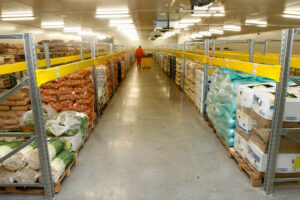
Remote food catering plays an important role in supporting workers across Canada’s most isolated job sites. Whether in the far
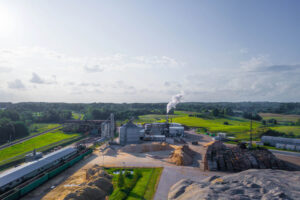
Remote camp maintenance jobs in Canada support the full lifecycle of temporary worksites—from setup (mobilization) to daily operations (maintenance) and

Remote catering companies play a vital role in supporting Canada’s vast and varied industries, especially those operating in isolated or

Oil and gas facilities management is a complex and critical discipline that ensures energy operations in Canada’s most remote locations
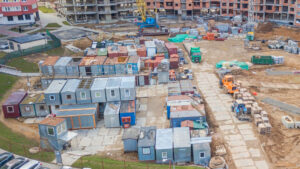
In the rugged, often isolated world of remote construction camps, construction facility management is the invisible force that sustains daily

Remote maintenance is the backbone of operational continuity in Canadian work camps, especially those located in isolated regions supporting industries
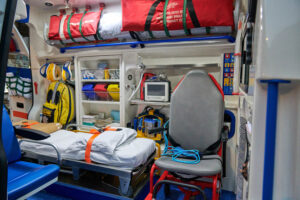
Remote camp health and safety is a vital concern in the management of Canadian remote workforce camps, especially in resource-driven
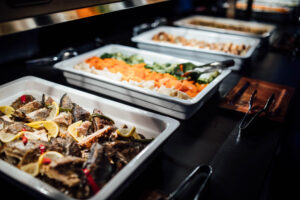
Keeping crews energized and satisfied starts with smart camp food menu ideas—especially in remote environments where morale and nutrition go

Gas remote camp mobilization is a critical operational phase in Canada’s oil and gas industry, particularly in remote and northern

When it comes to remote site security in Canadian work camps, ensuring safety and protection is paramount. These facilities, often

In Canada’s vast and resource-rich landscapes, remote site maintenance plays a pivotal role in sustaining the operations of work camps

In Canada’s vast and often isolated regions, remote camp management plays a vital role in advancing sustainability across diverse work
